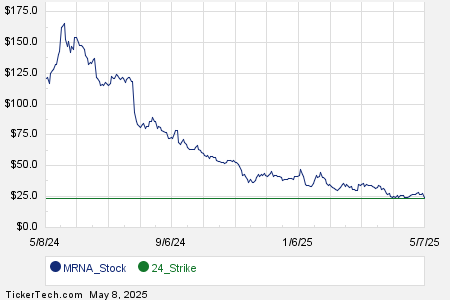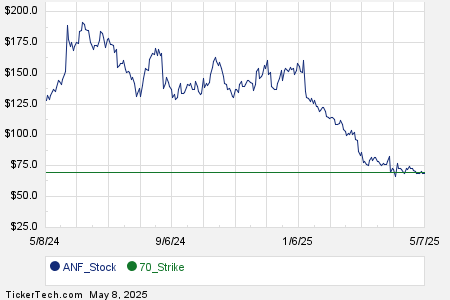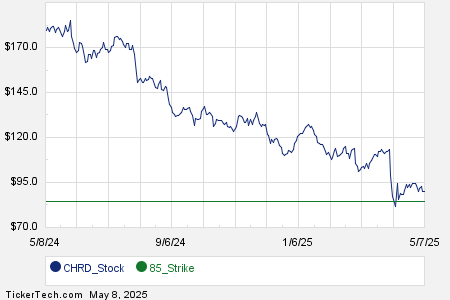CoreWeave’s Upcoming IPO Faces Market Challenges Amid AI Stock Declines
This year, the Nasdaq Composite has fallen approximately 8%, driven by broad sell-offs in large artificial intelligence (AI) stocks. Despite these challenging conditions, AI start-up CoreWeave, which is backed by Nvidia, has announced plans for an initial public offering (IPO). Recently, the company filed its S-1, indicating that shares will be marketed within a range of $47 to $55. With 48.7 million shares potentially available, the IPO’s valuation is around $2.7 billion.
Where to invest $1,000 right now? Our analyst team recently identified the 10 best stocks to consider for investment. Learn More »
While CoreWeave’s public offering is eagerly awaited, I have reservations about investing in the company at this time. This article will examine CoreWeave’s business model, financial status, and why another Nvidia-backed AI data center stock might be a more promising choice.
Reasons Investors Should Consider Avoiding CoreWeave’s IPO
CoreWeave focuses on renting out high-performance chipsets known as graphics processing units (GPUs), critical for training generative AI applications. Major manufacturers like Nvidia, Advanced Micro Devices, and Broadcom primarily develop these GPUs. Additionally, major cloud companies like Microsoft, Amazon, and Alphabet are pursuing custom silicon solutions, alongside Meta Platforms, which also utilizes CoreWeave’s compute rental services as noted in its S-1 filing.
Despite the impressive presentation, delving deeper into CoreWeave’s filings reveals some concerning details. For instance, while the company projected revenue of $1.9 billion for 2024, marking a remarkable 736% increase from 2023, this growth is not without significant costs. CoreWeave’s net loss expanded to $863 million last year, compared to a loss of $593 million in 2023.
Start-ups often prioritize aggressive growth, investing heavily in product development and marketing, sometimes at the expense of profitability. While I want to be understanding regarding CoreWeave’s losses, a more alarming trend emerges from the company’s customer base.
CoreWeave increasingly relies on a limited number of customers for revenue. In 2022 and 2023, 41% and 73% of its revenue came from just three customers, with that number increasing to 77% from only two customers in 2024. Notably, Microsoft now represents 62% of that sales figure, up from 35% the previous year.
This growing customer concentration is concerning, suggesting CoreWeave operates as a high-cash-burn business heavily dependent on a select few customers for substantial growth. Therefore, I consider the business to be quite risky.

Image source: Getty Images.
Another Nvidia-Backed AI Data Center Stock as an Alternative
Investing in IPOs often involves considerable risk. Given the substantial excitement around AI in recent years, it’s likely that investors will be eager to purchase shares of CoreWeave. This could lead to a sharp flurry of activity in the initial trading days.
However, based on the financial analysis presented, I do not recommend chasing potential momentum in CoreWeave’s stock.
Instead, I’d suggest considering alternative options that may benefit from CoreWeave’s IPO. For instance, Nebius Group (NASDAQ: NBIS) is also backed by Nvidia and specializes in AI infrastructure. I find it to be a more appealing investment at this moment.
Nebius is actively outfitting data centers with GPUs, including Nvidia’s new Blackwell architecture. The company primarily operates in Europe but has begun expanding into the U.S. market as well. In addition to its infrastructure operations, Nebius also works in cloud software and robotics.
In 2025, major companies like Alphabet, Microsoft, Amazon, and Meta are expected to invest over $320 billion into AI infrastructure encompassing chip technology, data center construction, and robotics. With Nvidia’s Blackwell chips projected to gain a share of this expenditure, I foresee rising interest in AI infrastructure, presenting a favorable trend for Nebius in the long term.
Although Nebius is currently smaller than CoreWeave, it offers a diversified business model that spans various sectors within AI. Over time, investors may recognize the potential of Nebius’ multifaceted being, which could lead to substantial increases in valuation.
If CoreWeave fails to demonstrate swift customer acquisition or establish a clear path towards profitability, investors may quickly lose interest, particularly those who chase momentum during the IPO.
Should You Invest $1,000 in Nebius Group Now?
Before investing in stock shares of Nebius Group, consider the following:
The Motley Fool Stock Advisor team has pinpointed the 10 best stocks for investors to consider, and Nebius Group is not included. The stocks that made their selection could yield substantial returns in the next few years.
Consider that if you had invested $1,000 in Nvidia when it was first recommended on April 15, 2005, you’d now have $721,394!*
Stock Advisor offers an accessible strategy for investors, providing portfolio-building guidance, analyst updates, and two fresh stock picks monthly. Since 2002, the Stock Advisor has more than quadrupled the S&P 500’s return. Join now to access the latest top 10 list.
*Stock Advisor returns as of March 18, 2025.
John Mackey, former CEO of Whole Foods Market, an Amazon subsidiary, is a member of The Motley Fool’s board of directors. Suzanne Frey, an executive at Alphabet, is a member of The Motley Fool’s board of directors. Randi Zuckerberg, a former director of market development and spokeswoman for Facebook and sister to Meta Platforms CEO Mark Zuckerberg, is a member of The Motley Fool’s board of directors. Adam Spatacco has positions in Alphabet, Amazon, Meta Platforms, Microsoft, and Nvidia. The Motley Fool has positions in and recommends Advanced Micro Devices, Alphabet, Amazon, Meta Platforms, Microsoft, Nebius Group, and Nvidia. The Motley Fool recommends Broadcom and has options on Microsoft. The Motley Fool has a disclosure policy.
The views and opinions expressed herein are the views and opinions of the author and do not necessarily reflect those of Nasdaq, Inc.




